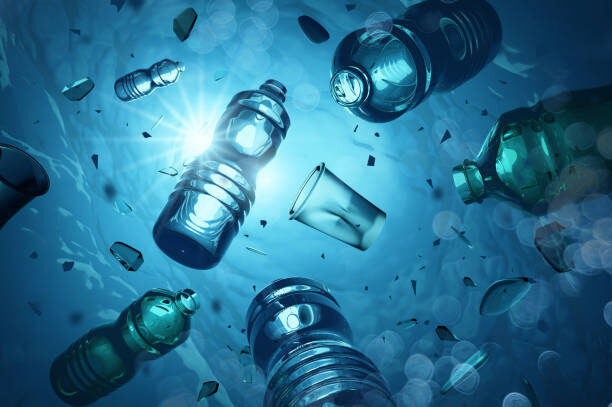Since March, users in the Nordic fintech and digital bank Lunar have been able to remove the plastic in the ocean using their card through a collaboration with the Australian cleantech company Seabin.
Since the launch of Project Blue Lunar`s users have removed thousands of kilos of plastic in the Nordic countries.
Project Blue is a feature, where users in Lunar in both Denmark, Sweden and Norway can donate between DKK 1-5 for every DKK 1000 spent to clean up the ocean. Lunar tops up all donations with 2%.
But the demand for donations to Project Blue has been so high that the nordic fintech must expand its efforts further.
To meet the demand Lunar takes another step in Project Blue and expands the collaboration to a new company, ReSea Project, that has made it its mission to remove plastic in the oceans of Indonesia.
With Resea, it will be possible for Lunar’s users of Project Blue to make an effort not just in the Nordic region but in some of the most plastic-polluted places in the world.
“With Project Blue, Lunar users can easily and personally help clean up the oceans. There has been an overwhelming interest from our users, so we need to expand our efforts and look beyond the Nordic region. That is why we are adding new partners, ”says Morten Sønderskov, COO of Lunar.
More than 1 million kilo of plastic
Indonesia is the second-largest contributor in the world to plastic pollution after China. The country produces 3,2 million tons of plastic waste each year, of which 1,29 million tons end up in the sea, according to estimates from Indonesia’s Ministry of Environment.
For two years ReSea has been fighting to change that statistic. But the company has also a social mission to create economic growth and combat poverty in Indonesia. So the plastic is collected by local fishermen and workers, who get paid by ReSea.
In addition, ReSea is one of two companies in the world that has received a certificate from the risk management company DNV GL. The certificate is only given to those companies that have the highest level of plastic detection in oceans and rivers.
“Although ocean plastic pollution is a problem in the North as well, it’s merely a fragment compared to the magnitude of the problem in Indonesia, where Resea Project operates. Although it seems natural to tackle the problem in your own home-turf, we believe that we need to tackle the problem where it’s the worst to make a real change,” says Ann Sofie Gade, General Manager ReSea Project.
ReSea has managed to clear the sea for at least one million kilo plastic.
More personal
Lunar welcomes the collaboration with Resea and hopes to deliver some good results for the benefit of a cleaner ocean.
The digital bank is also sure that through initiatives such as Project Blue you can get your users to make a difference and choose the more sustainable ways.
“With Seabin and Resea as partners, we can take even greater steps towards plastic pollution in our Project Blue efforts,” added Sønderskov.
“We believe that initiatives like Project Blue work because users can personally follow their own efforts in a much more personal way than if they just donated an amount without knowing what impact the donation made. In the Lunar-app you can keep track of how many plastic bottles you have removed. Our experience is that our users have a great interest in that.”



